In Defending Dennis Hastert, Washington Forgets Sex Abuse Victims
Members of the American political elite feel they are protecting the establishment by giving the former House speaker the benefit of the doubt, just as the Vatican has done for accused priests for decades.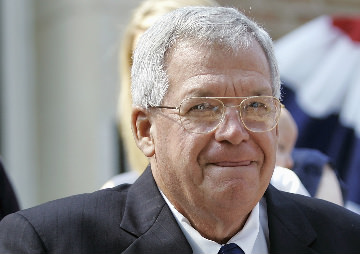 Former House Speaker Dennis Hastert, R-Ill., in 2007. (AP / Brian Kersey)
Former House Speaker Dennis Hastert, R-Ill., in 2007. (AP / Brian Kersey)
Dennis Hastert, a former speaker of the House of Representatives, is to Washington what many a pedophile priest has been to the Vatican: an accused sexual predator who is treated as if he deserves more protection than his alleged victims.
An FBI indictment issued last week says that “in or about 2010,” Hastert agreed to pay $3.5 million to a person known only as “Individual A” to cover up unspecified misconduct that had occurred years earlier. Though there are few clues in the indictment itself, several major news outlets have since reported that Individual A was a male student of Hastert’s when Hastert was still a high school teacher in Yorkville, Ill., and that the unspecified misconduct against the student was sexual. In addition, while I was writing this article, ABC News reported that a second student from the same high school made similar accusations against Hastert but did not seek compensation.
Leaving Hastert’s actual guilt or innocence aside, I am astonished that both the Washington political establishment and the press corps have consistently expressed disbelief that a person in his position could be capable of sexually abusing a child. The press has done everything possible to take the focus off of the question of child sexual abuse and to place it on Hastert’s alleged violations of banking laws — thus turning the story into a prototypical financial scandal that fits the political narrative in ways that a child sexual abuse scandal cannot.
To accept that a former speaker of the house — once one of the most powerful people in government and second in the line to succeed the president — might have sexually abused a child when he was a high school teacher is too much for some politicians and pundits. But by ignoring that dimension of the story, they do a great disservice to victims of childhood sexual abuse and to the public at large. They imply that a person who has served at the highest levels of government is incapable of such behavior — behavior that is rightly regarded as so reprehensible that perpetrators are not only exiled from the halls of power but spurned by society as a whole.
Members of the American political elite feel they are protecting the establishment by giving Hastert the benefit of the doubt, just as the Vatican and its subsidiaries have done for accused priests. But they do so by sacrificing Hastert’s alleged victims on the altar of organizational integrity. Even current House Speaker John Boehner has said: “The Denny I served with worked hard on behalf of his constituents and the country.” This is no time to be providing character references for a man that agreed to pay millions of dollars to a former student who accused him of a sexual offense.
Yet it is typical that the culture rushes to the aid of perpetrators with power and abandons the powerless victims. It’s as though an indictment of the accused — be they a House speaker, bishop, pastor, principal or teacher — is an indictment of the institution that authorized them for the position that they held. But the reality is that perpetrators come from all walks of life. According to the National Association of Adult Survivors of Child Abuse (NAASCA), “90% are abused by someone they know, love or trust.” So it is not incredible at all that a person who was a high school teacher who then entered politics and ascended to the top tiers of government might have a history of sexually abusing children.
It seems, however, that the press can only talk about the comfortable topics of money and cover-up, while the underlying issue — a true national scandal — begs for intelligent reporting that can bring perspective to it: child sex abuse in the United States. According to NAASCA: “There are over 42 million survivors of sexual abuse in America. Somewhere between 2/3 and ninety percent of sexual abuse victims never tell … 293,000 children and youth are estimated to be at risk of exploitation. 100,000 are prostituted annually.”
Hastert’s indictment is an unfortunate but excellent opportunity to re-educate the nation away from the “stranger danger” mantra and to a more responsible and accountable policy that recognizes that perpetrators are usually the people children know and trust. This is what we did at Pilgrim United Church of Christ in 2007 when we faced the prospect of a known sex offender attending our church. We developed a policy governing the inclusion of registered sex offenders who are part of the congregation. We refocused our energy toward effective supervision of children whenever they are on the church campus. This supervision requires that two unrelated adults are present in any activity in which children are involved — whether in a Sunday school class or a youth meeting.
We had to face the hard truth that excluding registered sex offenders does not make our children much safer because they represent so little of the threat. The sad truth is that there are not too many people on the sex offender registry, there are too few.
The Rev. Madison T. Shockley II is pastor of the Pilgrim United Church of Christ in Carlsbad, Calif. He writes commentary on a wide variety of subjects, including race, religion, politics, education, reproductive choice and popular culture.
Show your support for Truthdig’s independent journalism and donate today.
Rev. Shockley: Support Bringing Truth to a Post-Truth Era from Truthdig on Vimeo.
Your support matters…Independent journalism is under threat and overshadowed by heavily funded mainstream media.
You can help level the playing field. Become a member.
Your tax-deductible contribution keeps us digging beneath the headlines to give you thought-provoking, investigative reporting and analysis that unearths what's really happening- without compromise.
Give today to support our courageous, independent journalists.
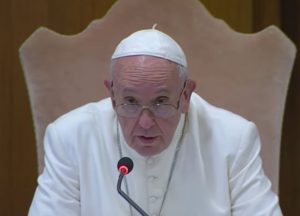


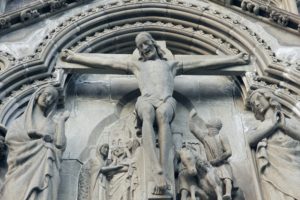
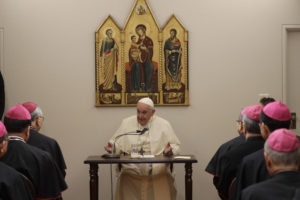
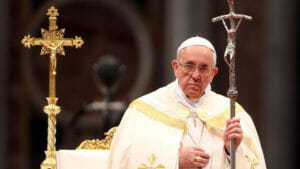
You need to be a supporter to comment.
There are currently no responses to this article.
Be the first to respond.